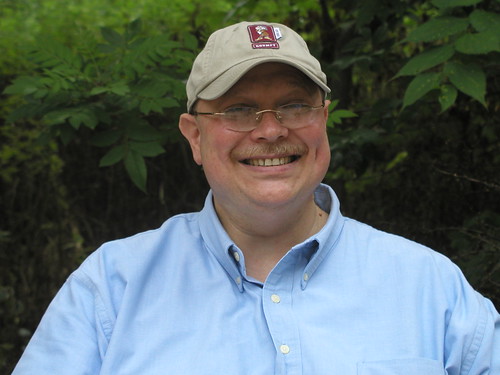Earth Team volunteer Steve Eckstein’s computer work is helping North Jersey Resource Conservation and Development Council (NJRC&D) improve water quality in a big way. He’s also helping farmers get conservation funding needed to improve their land.
Earth Team is the name given to USDA’s Natural Resources Conservation Service volunteers. Earth Team volunteers work side by side with Natural Resource Conservation Service employees on conservation projects to improve their local environment.
It was 2009 and NJRC&D had a problem. It was approved by NRCS to participate in the Agricultural Water Enhancement Program (AWEP), but needed help pinpointing program eligible farms and farmers.
AWEP is a five-year program which provides cost-share for farmers to implement best management practices to improve water quality in a selected high priority area. NJRC&D needed to identify sub-watershed areas impaired with phosphorus, sediment, and bacteria and contact individual farmers owning properties needing help. NJRC&D had a model showing hotspots of environmental concern, but the challenge was to link the model’s hotspots with actual farms on the ground. That required tedious computer mapping work.
NJRC&D advertised for an Earth Team volunteer to help them and Steve Eckstein answered, saying he was willing to help in any way he could. Eckstein explained he was available because he had been placed on long-term disability from his physically demanding job. He said data entry was perfect for him because he was determined to be active and helpful in spite of his disability.

Eckstein soon became what he dubbed a “desktop conservationist.” He took almost a thousand publicly available tax data sheets on area farms and manually entered that information into a database that was compatible with GIS computer mapping software. Data could then be used by AWEP personnel to contact farmers and improve water quality in the area.
In 2010, more than 32,000 Earth Team volunteers donated 641,549 hours of service to NRCS estimated to be worth $13.4 million. Since Earth Team was formed in 1985, over half a million volunteers have donated an estimated $327 million worth of time, in 2010 dollars, helping NRCS with its conservation mission.


